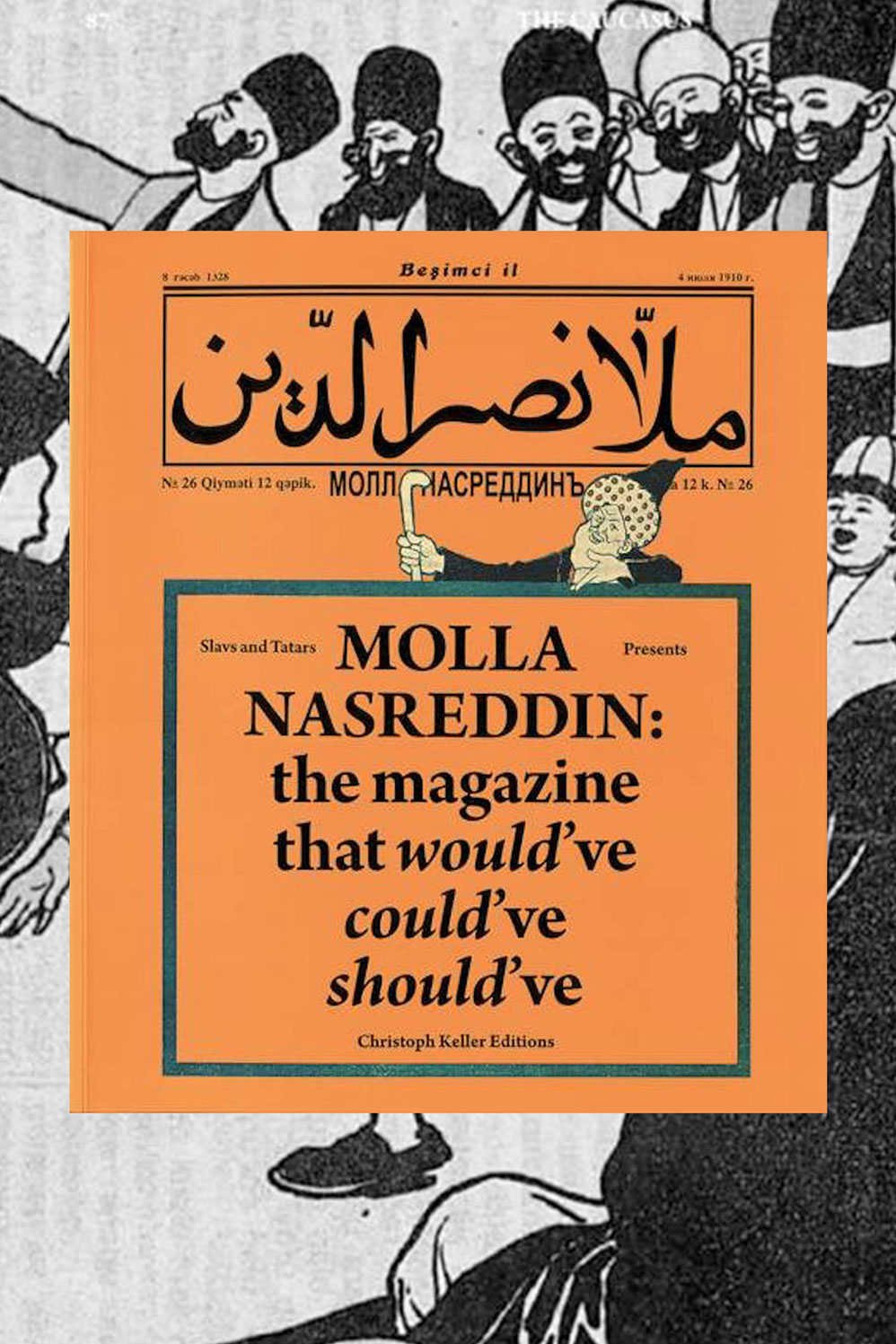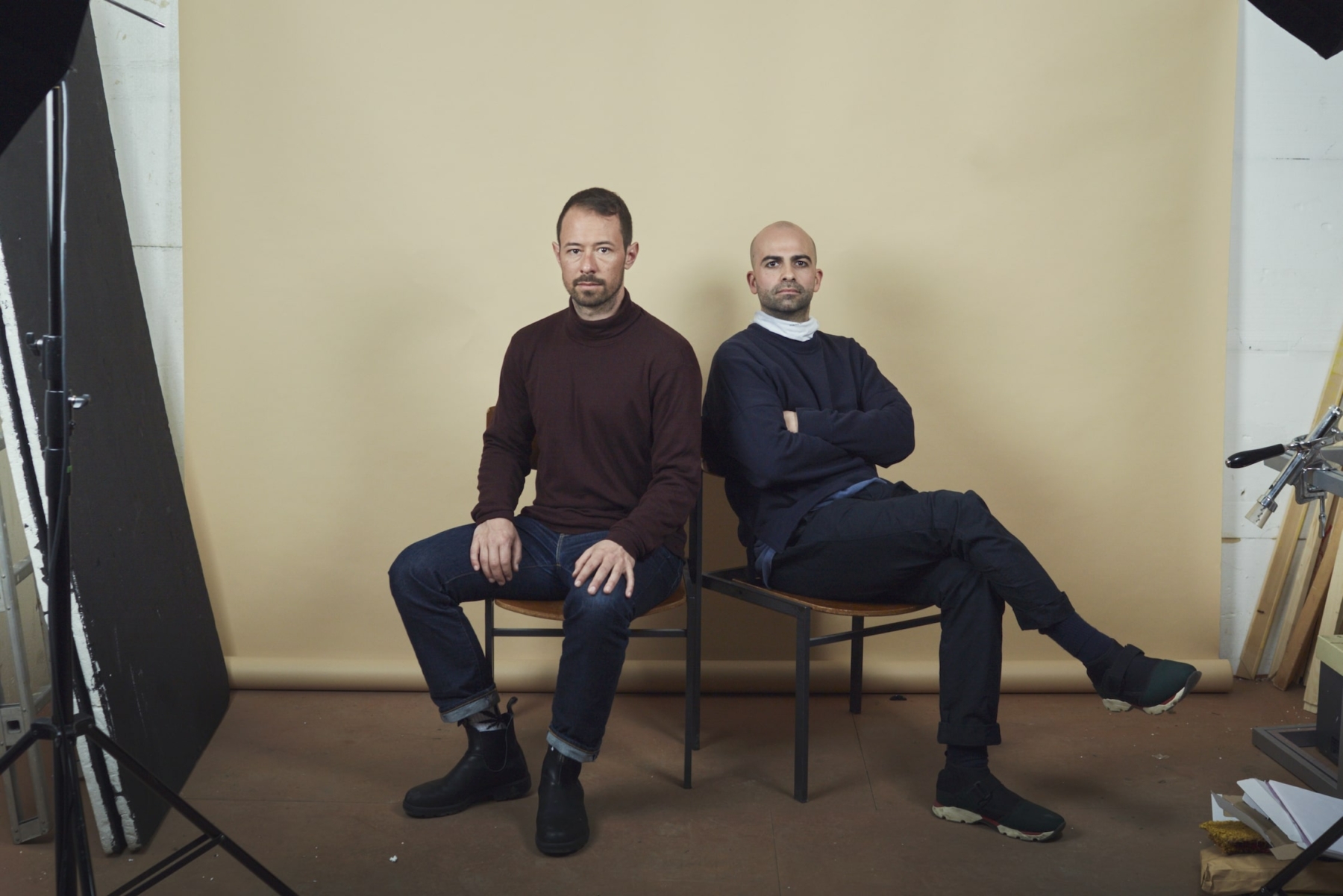Independent publishing house Sorry Press select their five favorite pieces of printed matter
We talked to the Munich-based publisher’s co-founder Lukas Kubina about the importance of physical collectibles, branded coffee mugs, and world domination.

As the old saying goes: “if you want something done, do you it yourself.” At least that was the thinking behind the founding of Munich-based independent publishing house Sorry Press, which was established by journalist and author Lukas Kubina and graphic designer Moritz Wiegand in 2015. After first having met each other many years ago at “a. A bar, b. An office, c. An open-air – who knows?” Kubina reached out to Wiegand to ask him if he wanted to design his debut novel, Cerebro Frito. “Several large publishing houses had expressed their enthusiasm after reading the manuscript but declined because it wouldn’t fit their programs,” says Kubina. “Some smaller companies were equally impressed but their offers had one catch: they wanted to externalize costs and pass them on to me.” This frustrating revelation led Wiegand to suggest that he and Kubina should start their own publishing house in order to get the book out there. “If you have to invest money and take care of all the marketing anyway, why not start your own platform?”
“Independent publishing houses are closer to their readers and cultures. They’re not tied to overhead infrastructures and can pick their titles more freely.”
When put like this, it sounds incredibly simple, but Kubina admits there are many challenges facing independent publishing companies today. “Money is a big one. Distribution is another. We’re currently getting tired of going to the post office every day so we’re working on establishing better processes right now,” he says. But there are also many pros to outway the cons. “Independent publishing houses are closer to their readers and cultures. They’re not tied to overhead infrastructures and can pick their titles more freely, as long as they establish and maintain a sharp profile,” Kubina adds, stating that Sorry Press’ remit is mainly in the field of fiction, art, and design publications. Their choice of company name also hints towards the content they look to produce. “It’s a statement of non-participation, a hint towards unusual and provocative content, and a snappy, upfront apology for any backlash we might get from it.” Another challenge everyone working in print media faces is the growth and dominance of digital content platforms. When asked why they think it’s still important to still produce tangible literary objects, Sorry Press says that it’s not worth explaining. “Either you appreciate physical collectibles or you don’t,” says Kubina definitively.
Since their inaugural publication of Cerebro Frito, Sorry Press has released two additional books: Das Kapitel, a collection of 52 drawings by German illustrator Stefan Marx and 14 Tage by Markus Miessen. “14 Tage is a diary about Markus’ crappy trip to Thailand. As a publication, it sits on the intersection between artist books and pulp fiction genres,” says Kubina. While, to date, all of their titles have been collaborations with German creatives, Sorry Press admits that this is more of a bi-product of “fishing in their own pond” rather than a conscious decision. Moving forward, they will be working with more international partners. “Currently we’re working on a publication with a Mexican artist, and we are hoping to publish the essays of a French philosopher,” says Kubina, explaining that the publishing house’s main ambition for the future is “to keep realizing more and more beautiful projects that [they] are fond of.” And then, eventually after a period of slow, permanent and sustainable growth, “branded coffee mugs and world domination.”
Sorry Press recommends five printed publications

“This is a volume of archival material from Muslim satire magazine that was produced from 1906 – 1930 and had a readership stretching from Morrocco to Iran. It’s enlightening, progressive, and excellently drawn. It reminds us of the late-20th-century German satirical magazine Simplicissimus.”
200 D by Christopher Roth
“This is a seminal book about the transition from beatnik to pop culture. Originally written in 1982, it’s a brilliantly superficial time capsule. It’s also an inspirational springboard for the work we do at Sorry Press.”

“Nicolai and Wenzel’s Labyrinth explores the mythology and history of labyrinths. It’s layout almost makes it look like it’s a powerpoint presentation or lecture in book form. It’s very entertaining, and also very educational.”
Extractor by Simon Denny
“New Zealand-born sculptor Simon Denny produced a board game instead of the usual art catalog for his 2019 MONA (Museum of Old and New Art, Tasmania) exhibition Mine. It’s an example of ‘gamified’ political education at its best.”

“This is high art. It’s very educational and engraves itself in your memory.”
Sorry Press is an independent publishing house based in Munich which was founded by Lukas Kubina and Moritz Wiegand. To date, they have published three titles: Das Kapitel by Stefan Marx, 14 Tage by Markus Miessen, and Cerebro Frito by Lukas Kubina.
This interview was produced as part of our series In a Nutshell. Head over to read more articles where creatives around the world talk us through references that inspire their work. Or, if you’d like to read more about individuals championing the importance of print media, check out some of the stories from our Print Matters section.
Text: Emily May

